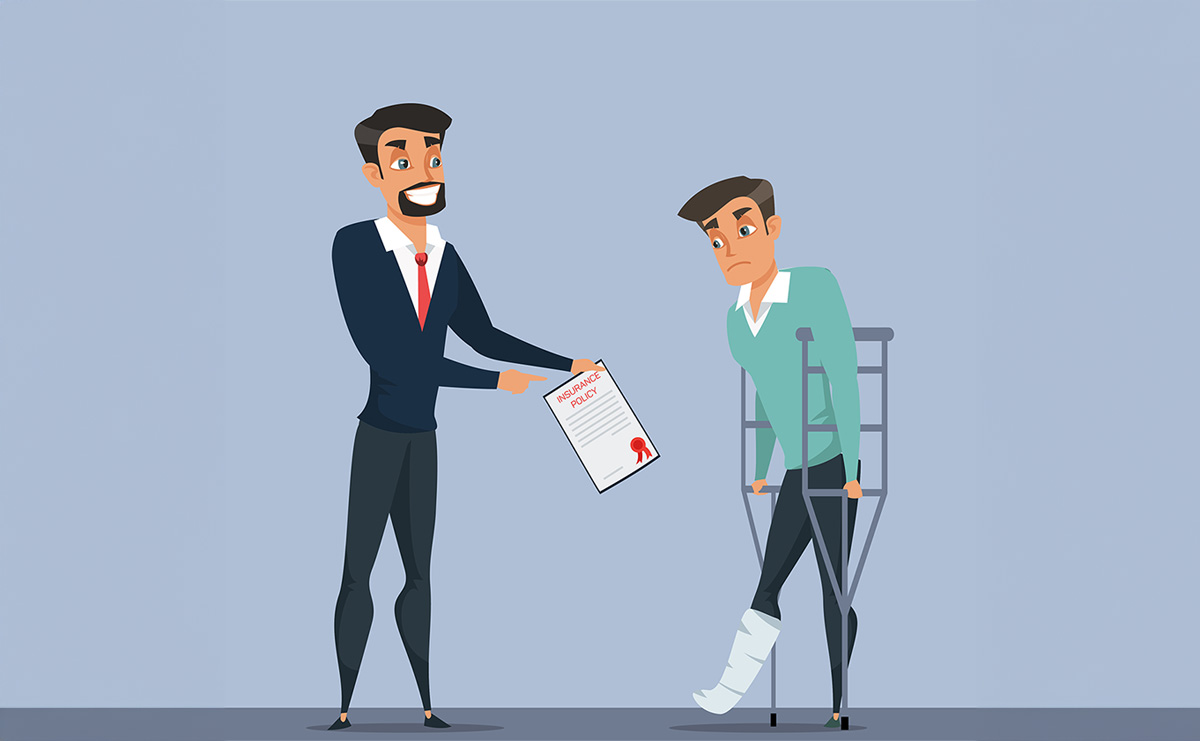Contents
The Aftermath of Personal Injury: Legal Steps for Protection and Compensation
In the aftermath of a personal injury, the emotional, physical, and financial toll can be overwhelming. Whether the injury is due to a car accident, a slip and fall, or medical malpractice, the path to recovery is often fraught with challenges. This guide serves the important function of helping you understand the legal steps you need to take. It ensures you are adequately protected and compensated, outlining the crucial actions following a personal injury.
Seek Immediate Medical Attention
Your health should always be the top priority after sustaining an injury. Seeking immediate medical attention ensures that you receive the necessary treatment and creates a crucial medical record documenting your injuries. This documentation is not just a record of your health, but also a powerful tool for any legal claims you may pursue. It provides clear evidence linking the injury to the incident in question, strengthening your case and ensuring that you receive the compensation you deserve.
Immediate medical care plays a crucial role in preventing minor injuries from escalating into more serious health issues. This proactive approach not only safeguards your long-term health but also strengthens your legal position. It prevents insurance companies or opposing parties from arguing that your injuries were not severe or were unrelated to the incident. By seeking immediate medical attention, you demonstrate a proactive approach to your health, reinforcing the legitimacy of your claims and ensuring that you have comprehensive medical records to support your case. This proactive approach empowers you to take control of your health and legal situation, allowing you to focus on recovery while knowing that your interests are being adequately addressed.
Document the Incident
As soon as you are able, document everything related to the incident that caused your injury. This includes taking photographs of the scene, your injuries, and any property damage. If there were witnesses, collect their contact information and ask for their statements. Detailed notes about what happened, how you felt immediately after the incident, and any conversations you had with the other party or witnesses can also be invaluable.
Documenting the incident thoroughly serves as a foundation for building a strong legal case. Photographs and videos can capture the exact conditions during the incident, preserving evidence that may be altered or disappear over time. These visual records are compelling in court, providing a clear, unbiased depiction of the scene and your injuries.
Gathering witness information is equally important. Witnesses can provide independent accounts of the incident, corroborating your events. Their statements can be crucial, especially if there are disputes about how the incident occurred or who was at fault.
In addition to visual evidence and witness statements, keeping a detailed written account is essential. Your notes should include every relevant detail, no matter how minor it may seem at the time. Record the timeline of events, your physical and emotional state, and any pain or symptoms you experienced. This documentation helps refresh your memory later and provides consistency and accuracy in your legal narrative.
Moreover, documenting these interactions is crucial if you communicate with the other party or their representatives. Emails, texts, or notes about phone calls can reveal essential details or admissions that support your case. This comprehensive approach to documentation can significantly strengthen your position in any legal proceedings, ensuring you have a solid foundation of evidence to back up your claims.
Report the Incident
Timely reporting your injury is not just a procedural requirement but a critical step in safeguarding your legal rights. For example, in a car accident, contacting the police immediately ensures that an official incident record is created. This police report is a crucial document, often containing vital details such as witness statements, the officer’s observations, and a summary of how the accident occurred. These details can be pivotal in establishing liability and supporting your compensation claim.
Similarly, in cases of workplace injuries, promptly notifying your employer is not just a formality but a crucial step that provides reassurance. It initiates the worker’s compensation process and ensures that your injury is documented in accordance with workplace safety regulations. This documentation might include incident reports, medical evaluations, and safety inspections, which are invaluable if disputes arise regarding the cause or severity of your injury.
In both scenarios, the absence of an official report can weaken your position in any legal proceedings that may follow. It could lead to challenges in proving the circumstances of your injury, potentially affecting the outcome of your claim. Therefore, reporting your injury is not just fulfilling a formality; it is a proactive measure that you can take to protect your interests and strengthen your case in any subsequent legal actions.
Consult with a Personal Injury Attorney
Consulting with a personal injury attorney is crucial after you’ve been injured, mainly if you believe another party is responsible for your injury. An experienced attorney can provide invaluable guidance on navigating the complex legal process that often follows a personal injury incident.
During your consultation, your attorney will evaluate the details of your case, including the nature of your injury, how it occurred, and the extent of your damages. They can help you understand your legal rights, options, and whether you have a viable claim for compensation. This might include compensation for medical bills, lost wages, pain and suffering, and other related expenses.
A personal injury attorney can assist in gathering and preserving critical evidence, negotiating with insurance companies, and representing your interests in court if necessary. Insurance companies often attempt to minimize payouts, but having an attorney on your side ensures you are not taken advantage of and receive the total compensation you are entitled to.
Consulting with an attorney early in the process also helps to ensure that you meet all legal deadlines, such as statutes of limitations, which could otherwise bar you from pursuing your claim. By working with a personal injury attorney, you can focus on your recovery while they handle the legal complexities of your case.
Preserve Evidence
Preserving evidence is not just about record-keeping, it is about creating a comprehensive archive of all the pertinent details related to your injury. This meticulous approach significantly bolsters your case, providing your attorney with a wealth of material to construct a compelling argument on your behalf.
Aside from medical records and receipts, it’s crucial to document the scene of the incident if possible. This could involve taking photographs or videos of the location, any hazardous conditions, and visible injuries immediately following the event. These visual records play a pivotal role in providing decisive evidence, especially if the circumstances of your injury are later disputed.
Another crucial element in preserving evidence is the maintenance of a detailed personal injury journal. This journal, which should document your daily experiences post-injury, including pain, activity limitations, emotional distress, and overall quality of life impact, offers a narrative that complements the more objective evidence. It provides a fuller picture of how the injury has affected you, making it a valuable asset in your case.

File a Personal Injury Claim
Filing a personal injury claim is critical in seeking compensation for the damages you’ve sustained due to someone else’s negligence. The process begins with your attorney gathering all relevant information, including medical records, police reports, witness statements, and other evidence supporting your case. This evidence can include photographs of the accident scene, expert testimonies, and any other documentation that can help build a strong claim and demonstrate the extent of your injuries and the impact on your life.
Once the claim is prepared, it will be formally submitted to the court and the responsible party, initiating the legal process. At this stage, your attorney may engage in pre-trial negotiations with the other party’s insurance company to settle. These negotiations can be complex, as insurance companies often attempt to minimize payouts. Your attorney’s role is to advocate, ensuring that any settlement offer adequately reflects the actual cost of your injuries and losses.
If a fair settlement cannot be reached through negotiation, your case may proceed to trial. During the trial, both sides will present their evidence and arguments, and a judge or jury will determine the outcome. This could result in a favorable judgment that fully compensates you for your losses, providing a sense of justice and closure. Throughout this process, your attorney will provide guidance, represent your interests, and work to achieve the best possible result for your situation.
Alongside medical expenses and lost wages, your claim can also include compensation for non-economic damages such as emotional distress, loss of enjoyment of life, and future medical needs. The ultimate goal, which your attorney will tirelessly work towards, is to secure a comprehensive settlement or judgment that fully compensates you for the harm you’ve endured, providing you with the financial support you need to move forward.
Prepare for Litigation, if Necessary
Preparing for litigation is a critical phase in a personal injury case, particularly when settlement negotiations fail to yield a satisfactory resolution. If litigation becomes necessary, the process begins with a thorough preparation phase that involves several key steps aimed at building a robust case.
Your attorney will first engage in the discovery process. This phase involves the exchange of information between both parties, including documents, evidence, and witness lists. Discovery allows your attorney to gather additional evidence, request information from the opposing party, and depose witnesses, including experts who can testify about the extent of your injuries and the impact on your life. This process is essential for uncovering all relevant facts and ensuring that your case is as strong as possible.
Following discovery, your attorney will conduct depositions. Depositions involve taking sworn testimony from parties involved in the case, including witnesses and experts, outside of the courtroom. These sessions allow your attorney to gather detailed information, clarify facts, and assess the credibility of witnesses. The information obtained during depositions can be instrumental in shaping the direction of your case and preparing for trial.
As the trial date approaches, your attorney will work closely with you to develop a trial strategy. This includes preparing opening statements, identifying key arguments, and determining the best way to present evidence. Your attorney will also prepare you for the possibility of testifying, ensuring that you are comfortable and confident when presenting your side of the story in court.
Your attorney will prepare the factual elements of the case and handle the legal complexities of the trial process. This includes filing necessary motions, responding to the opposing party’s motions, and adhering to strict procedural rules. The courtroom can be an intimidating environment, but with an experienced attorney by your side, you can navigate it with greater confidence.
During the trial itself, your attorney will present your case to the judge or jury, making compelling arguments, examining witnesses, and challenging the opposing party’s evidence. The goal is to demonstrate that the responsible party’s negligence caused your injuries and that you are entitled to the compensation you seek. Your attorney’s skill in presenting the case, cross-examining witnesses, and persuasively arguing on your behalf is crucial to achieving a favorable outcome.
Even during the trial, there may still be opportunities for settlement. Sometimes, the pressure of an impending trial can motivate the opposing party to offer a more reasonable settlement. Your attorney will keep you informed of any offers and advise you on whether to accept or continue with the trial.
Ultimately, preparing for litigation is about ensuring that every aspect of your case is meticulously planned and executed. Whether your case is resolved through a pre-trial settlement or a full trial, having a dedicated and experienced attorney by your side maximizes your chances of securing the compensation you deserve.
Consider Long-Term Implications
Understanding the long-term implications of a personal injury is a critical step in securing a settlement or judgment that fully accounts for your losses. Personal injuries can have lasting effects that go beyond the immediate aftermath, affecting your quality of life, financial stability, and overall well-being for years. When valuing your claim, it’s vital to consider these long-term consequences to ensure you receive adequate compensation for your current needs and any future challenges.
One of the most significant long-term considerations is future medical expenses. Many injuries require ongoing medical care, such as physical therapy, surgeries, prescription medications, and routine follow-up visits with healthcare professionals. Your attorney will work with medical experts to project these future costs and include them in your claim, providing you with the reassurance that you can take them out of pocket.
Your attorney, in collaboration with medical experts, will consider the possibility of future complications arising from your injury. In some cases, injuries can lead to chronic pain, disability, or other long-term health issues that may not be immediately apparent. By working with these experts, your attorney can anticipate and include these potential complications in your claim, providing you with the financial security you need to manage any future challenges.
Focus on Recovery
Focusing on your recovery during a personal injury case is crucial for both your health and your legal outcome. Adhering to your doctor’s advice, attending all medical appointments, and actively participating in rehabilitation are key steps that promote healing and provide strong evidence for your case. Addressing any emotional impacts, making necessary lifestyle adjustments, and communicating openly with your attorney further support your recovery and strengthen your legal position. Prioritizing your health not only improves your chances of a full recovery but also demonstrates your commitment, which can positively influence the outcome of your case.
Stay Informed and Involved
Staying informed and involved in your personal injury case is crucial for a successful outcome. Regular communication with your attorney keeps you updated on the status of your claim and helps you understand each stage of the legal process. Being prepared to make informed decisions and providing timely information to your attorney ensures your case is handled effectively. Active involvement also helps you understand essential documents, which in turn, boosts your confidence and knowledge about your case. This understanding fosters a strong working relationship with your attorney, ultimately increasing the chances of a favorable result.
In conclusion, navigating the aftermath of a personal injury can be an overwhelming and complex journey, but taking proactive steps can significantly impact your recovery and legal outcomes. From seeking immediate medical attention to preserving evidence and consulting with a skilled attorney, each action you take plays a crucial role in safeguarding your rights and securing the compensation you deserve. By staying informed, involved, and focused on your health, you can better manage the challenges ahead and work toward a resolution that supports your long-term well-being. This guide serves as a vital resource to help you through each stage, ensuring that you are fully prepared to handle the legal and personal aspects of your injury with confidence.
Disclaimer: The content provided on this blog is for informational purposes only and does not constitute legal, financial, or professional advice.







